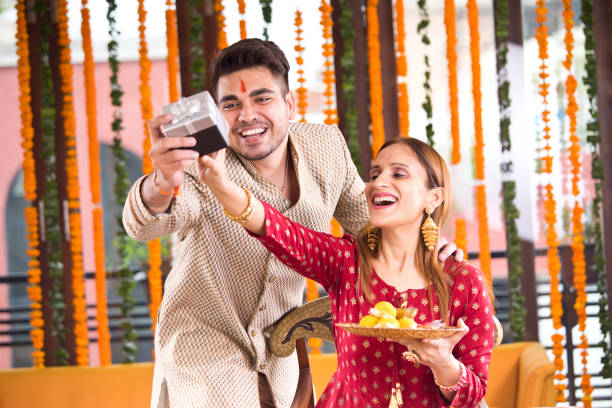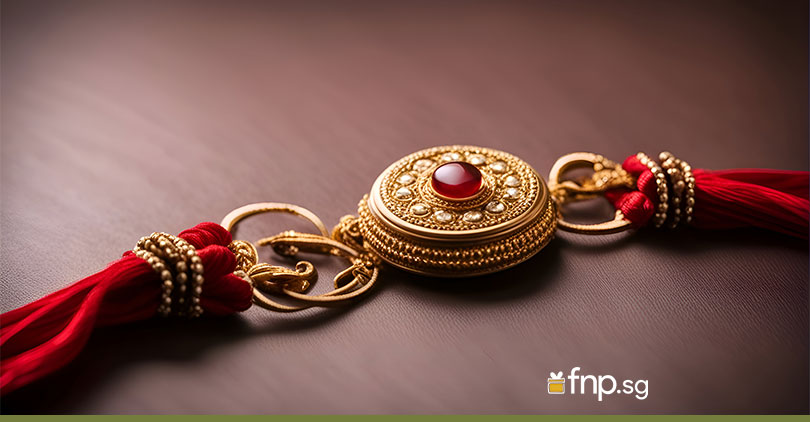
Historical Significance
The origins of Raksha Bandhan are rooted in Indian mythology and folklore, reflecting various narratives that highlight the protective nature of sibling bonds. One of the most famous tales involves the bond between Lord Krishna and Draupadi, where Krishna, moved by Draupadi's devotion, protected her during a moment of vulnerability by extending the length of her saree endlessly. Another popular tale narrates the legend of Yamuna, the sister of Yama, the God of Death. Yamuna tied a sacred thread on Yama's wrist, protecting him from a curse.
Cultural Significance
At the heart of the Raksha Bandhan celebration lies the beautiful ritual of tying a sacred thread, the Rakhi, on a brother's wrist by his sister. The Rakhi acts as a talisman, promising protection and well-being for the brother. In return, the brother pledges his unwavering support and vows to stand by his sister through thick and thin. Further, to add a delightful charm to the festival, brothers get rakhi gifts for sister as tokens of appreciation. This exchange of gifts symbolises mutual respect and affection, reinforcing the reciprocity inherent in sibling relationships.
Emotional Significance
Beyond the cultural significance, Rakhi holds immense emotional importance. It's a day dedicated to celebrating the complex yet beautiful relationship between siblings. Siblings are often our first confidantes, our partners in crime, and the witnesses to our most awkward and triumphant moments. Rakhi is an auspicious occasion to acknowledge and appreciate this unique connection.
Modern Day Relevance
The concept of Rakhi is beautifully adaptable. While traditionally celebrated between biological siblings, it has evolved to encompass a broader definition of family. Sisters often tie Rakhis on their cousins, close friends, or even mentors, acknowledging the special bond they share. This inclusivity strengthens the underlying message of the festival – that love and protection can exist beyond blood ties. The festivities surrounding Rakhi are a joyous occasion. Families come together, sharing delicious meals, exchanging rakhi gifts, and creating lasting memories. It's a time for playful banter, rekindling old stories, and forging new connections. Rakhi serves as a reminder to cherish the bond with our siblings and to nurture it with love and understanding.
The festivities surrounding Rakhi are a joyous occasion. Families come together, sharing delicious meals, exchanging rakhi gifts, and creating lasting memories. It's a time for playful banter, rekindling old stories, and forging new connections. Rakhi serves as a reminder to cherish the bond with our siblings and to nurture it with love and understanding. 




